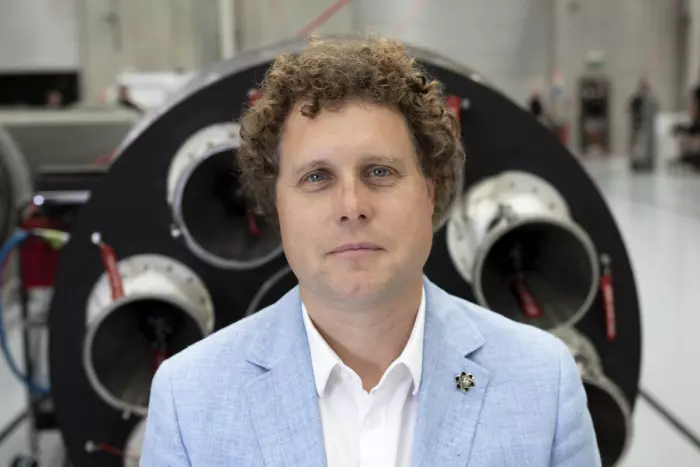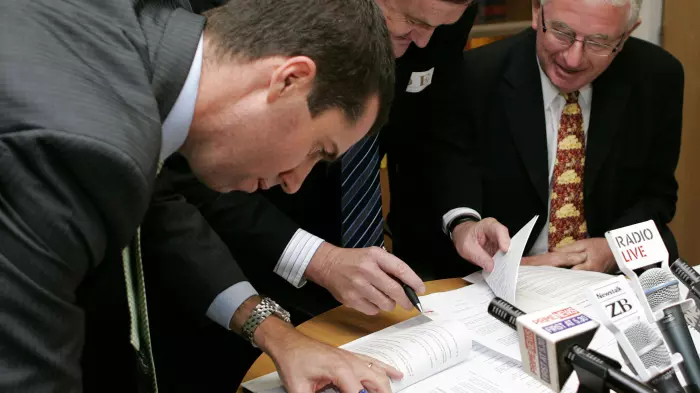The government's tech sector funding agency, Callaghan Innovation, says space company Rocket Lab has provided it with "reassurance" after reports claiming the headline-grabbing company operates a "toxic" work culture.
Callaghan has funded Rocket Lab millions of dollars in taxpayer money, including $24.8 million since 2017, as part of a research and development (R&D) growth grant.
Yesterday BusinessDesk reported claims from former Rocket Lab workers about its “toxic” workplace culture, following a May employment relations authority (ERA) determination that ordered the company to pay former employee Craig Owen $97,000 for unfair dismissal.
“Rocket Lab has spoken to us about the general situation, and proactively provided reassurance about the situation and their progress,” a Callaghan Innovation spokesperson told BusinessDesk today.
“We expect the businesses we support to carry out their programme of work in accordance with New Zealand legal requirements, including labour laws.”
BusinessDesk reported it understands Rocket Lab has routinely offered settlement agreements to employees in recent years to silence them and force them out of the company, offering compensation of a few thousand dollars.
In Owen's case, the ERA found Rocket Lab had not followed processes for dismissal required by NZ employment law.
Also claimed by former workers was a workplace culture of unquestioning loyalty, with overtime expected and people "rage quitting" due to burn out.
“Businesses do run into challenges like this and we keep an eye on these issues, including checking in where we need to. Callaghan has its usual audit procedures to ensure it’s satisfied the funding is used in line with funding agreement – but we don’t get involved in operational matters,” Callaghan said.
Rocket Lab said it takes its employment obligations seriously, as are employee complaints.
Taxpayer money
Rocket Lab had an R&D growth grant contract with Callaghan from 2013 to 2020 that allowed it to claim up to $5m per year, with Rocket Lab financials showing the $24.8m paid out since 2017.
In addition, Rocket Lab has received $213,469 in co-funding for research and development student fellowship grants, and $1.2m for four R&D project grants from Callaghan. Some $1m of an $8.3m Provincial Growth Fund investment into roads at the Māhia Peninsula was also paid to Rocket Lab, which it used to pave the road to its launch site on the remote east coast peninsula south of Gisborne.
The minister responsible for space Stuart Nash declined to comment on the allegations, the ERA decision, or whether Rocket Lab's behaviour met the 'fit and proper' test for a space licence as defined in the Outer Space and High Altitude Activities Act 2017.
However, the Green party's workplace relations spokesperson Jan Logie said the party "believes government funding and contracting should be conditional on organisations providing a safe, equitable and fairly paid work environment".
"Meeting the basics of employment law should be an absolute essential. If Rocket Lab is not meeting its requirements under employment law, that does call into question whether they meet the fit and proper person test under which they are granted the right to launch rockets.”
But the business, innovation and employment ministry's (MBIE's) general manager, science, innovation and international, Peter Crabtree, said workplace practices are not factors considered for space licenses.
“We have no other comment on a private company’s employment matters.”
The National party declined to comment.
Warning to 'rogue' employers
Numerous former Rocket Lab workers came forward to BusinessDesk after the ERA decision in Owen’s favour in May found Rocket Lab breached all four of the procedural fairness tests for dismissal in the Employment Relations Act.
“Mr Owen’s commitment to call Rocket Lab out will hopefully go a good way to protecting others from the same fate,” Owen’s lawyer Sam Houliston said.
“New Zealand’s employment legislation acknowledges the inherent inequality of power in employment relationships so it is important that the authority strongly discourages rogue employers from viewing awards of compensation and penalties as a ‘license fee’ and disregarding justification, fair procedure or the specific requirements in the employment agreement.”
Blair Scotland, a partner with employment law firm Dundas Street, said the use of settlement agreements is indicative of a lack of good policy process, but their use is not uncommon in other NZ businesses.
“It's probably more common than you might think, and more common than should be right, than is ethically and morally appropriate.”
He said it is common for shareholders to be unaware of such employment issues, and that their interests are represented by the company’s directors.
“If the directors aren’t across these issues, then there’s a question as to whether they are meeting their fiduciary obligations to the company.”
Calum Cartwright, senior associate at Cullen Law said any employee asked to sign a settlement agreement has the right to legal advice before they sign.
“Often in these situations, if an employer is behaving in that particular way, they don't want the employee to get legal advice because they know that will probably make it more difficult for them to get the employee out.
“When businesses do this, they're trying to just get a quick exit and to pay for that. So even though they should advise the employee of their right to get legal advice, more often than not, they don't.”
He said the common record of settlement used is a section 149 agreement that cannot be cancelled, unlike an ordinary contract.
“Employers want to be able to have a watertight, reliable agreement that the parties can't get out of,” he said.















